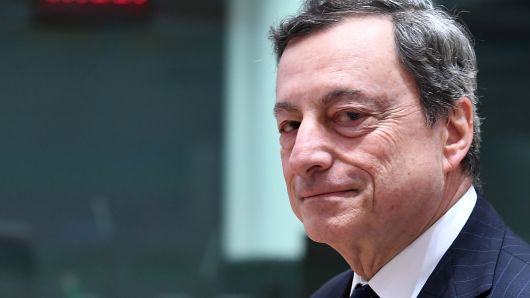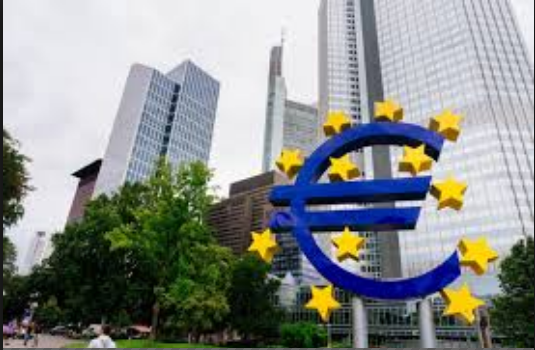- The focus will be on the ECB‘s assessments of these risks at its meeting Thursday, with investors concerned of the acute risk of a trade war escalation.
- New economic data published Tuesday showed somewhat lower readings of business activity in the region.
- The purchasing managers’ index posted a surprise drop in the services sector but a better reading for the manufacturing industries.
After a surprisingly dovish meeting in June, the European Central Bank (ECB) is expected to strike a more balanced tone this week, given heightened uncertainties for the global economy.
The focus will be on the ECB‘s assessments of these risks at its meeting Thursday, with investors concerned of the acute risk of a trade war escalation.
“We expect (ECB President) Mario Draghi to aim for a ‘Goldilocks’ tone at the July 26 press conference — not too hawkish, not too dovish,” said Mark Wall, the chief economist at Deutsche Bank, in a research note.

The ECB has committed itself to stop buying new bonds at the end of this year, but the onus clearly now is on the reinvestment of these purchases (as part of its crisis-era stimulus program) and its refined rate guidance. The euro zone’s central bank pledged to keep its key interest rate at minus 0.4 percent “at least through the summer of 2019” during its last meeting.
The risks now are that the ECB is unwinding its monetary stimulus right at a time when the economy could head south. For now, its seems the ECB is convinced the region’s economy will remain resilient.
“While uncertainties related to global factors, including the threat of increased protectionism, have become more prominent, the risks surrounding the euro area growth outlook remain broadly balanced,” Draghi himself said at a hearing in front of the European Parliament on July 9.
“Downside risks to the outlook relate mainly to the threat of increased protectionism,” he added.
New economic data published Tuesday showed somewhat lower readings of business activity in the region. The purchasing managers’ index posted a surprise drop in the services sector but a better reading for the manufacturing industries.
This suggests that it’s not trade war related concerns that are behind the recent decline, according to Dirk Schumacher from Natixis.
“The index level reached in July remains consistent with solid growth in the euro area,” he said in a research note Tuesday.












